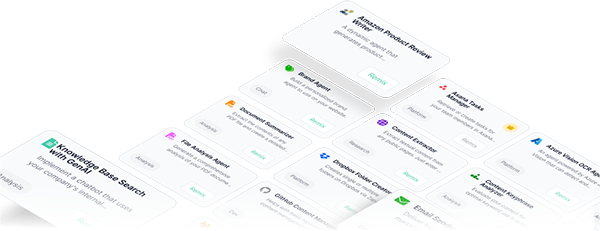Empowering Global Innovation with SmythOS
Empowering Global Innovation with SmythOS
Blog Article
SmythOS - Your AI Economy Partner
Artificial intelligence (AI) is transforming industries ranging from healthcare to money, but one important problem stays at the front of innovation: inclusivity. While AI presents innovative potential to revolutionize lives, it also supports the risk of reinforcing cultural inequities. For smythos to truly allow society, it must certanly be built to be inclusive. This means ensuring fairness, convenience, and illustration at all stages of development.
The Struggles of Bias in AI
Data reveal that partial AI components are a expression of the info they're experienced on. Poor illustration in datasets may result in discriminatory outcomes. Like, a generally offered study indicated that skin recognition computer software comes with an error rate of 35% for darker-skinned girls, compared to significantly less than 1% for light-skinned guys.That highlights a significant downside that disproportionately influences previously marginalized groups.

The issue is not just restricted to face recognition. Language models have exhibited biases, reinforcing harmful stereotypes in their outputs. Inclusive teaching data and varied clubs of designers are important to mitigate these issues. Without that, the chance remains that AI can perpetuate social inequality as opposed to fixing real-world problems.
The Benefits of Inclusive AI
When AI is produced inclusively, their benefits ripple across society. Inclusive AI will help connection gaps for underrepresented towns in training, health, and employment. For example, available AI solutions like monitor readers driven by organic language handling have already extended opportunities for people with disabilities. But there is however untapped possible to create these solutions popular as opposed to exceptions.
Research also reveals diversity in AI development results in innovation. A study from a high institution records that businesses with high selection in control roles are 45% more likely to report higher industry share growth. These ideas underline why inclusivity in AI is not really a prerequisite for ethical causes but a benefit for innovation and progress.

The Road Ahead
Producing inclusive AI demands change across numerous dimensions. Diverse and representative datasets, intersectional testing operations, and sturdy honest governance are the cornerstones of equitable AI development. Additionally, policymakers should play a role by enforcing regulations that push for transparency and accountability in AI systems.
The shift toward inclusive AI is not just about the technology. It's about redefining what development appears like. By prioritizing inclusivity, we can assure AI not only solves issues but does so for anyone, making no one behind in the technological revolution.
While difficulties remain, the rising conversation around inclusivity in AI signs progress toward a far more equitable future. By addressing biases today, we are able to style methods that allow rather than banish, highlighting the selection of individuals they aim to serve.
Report this page